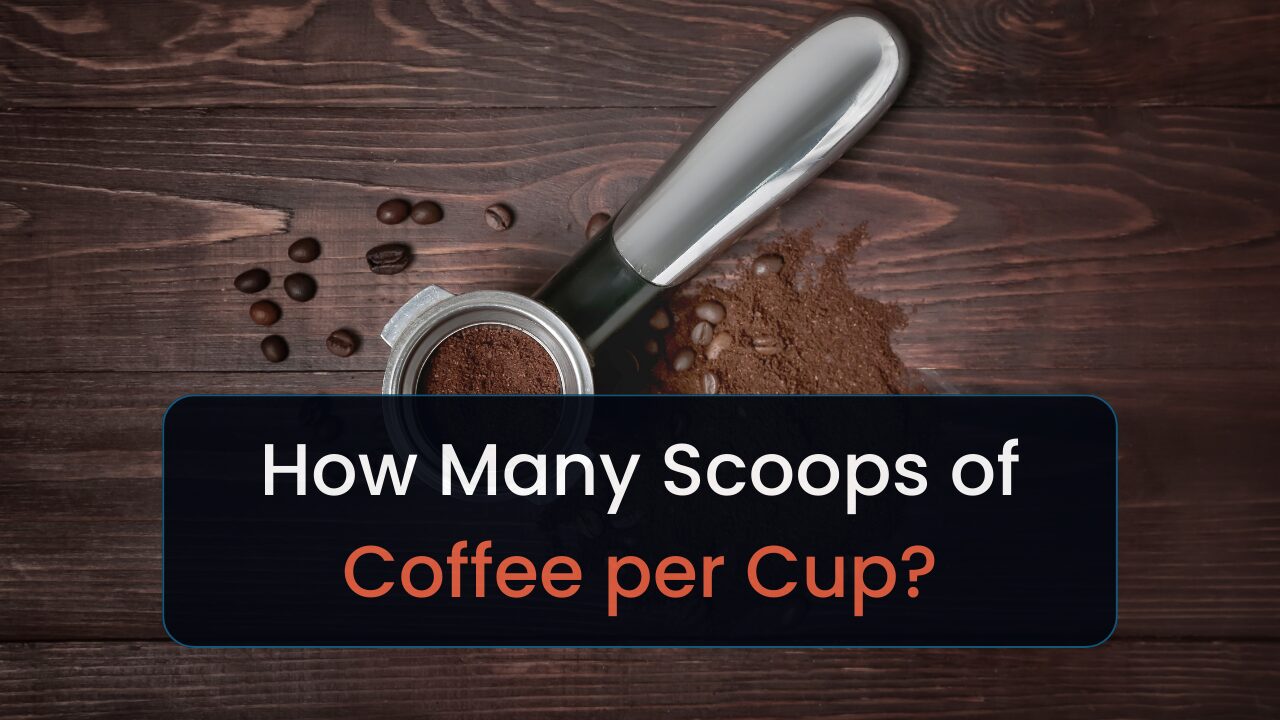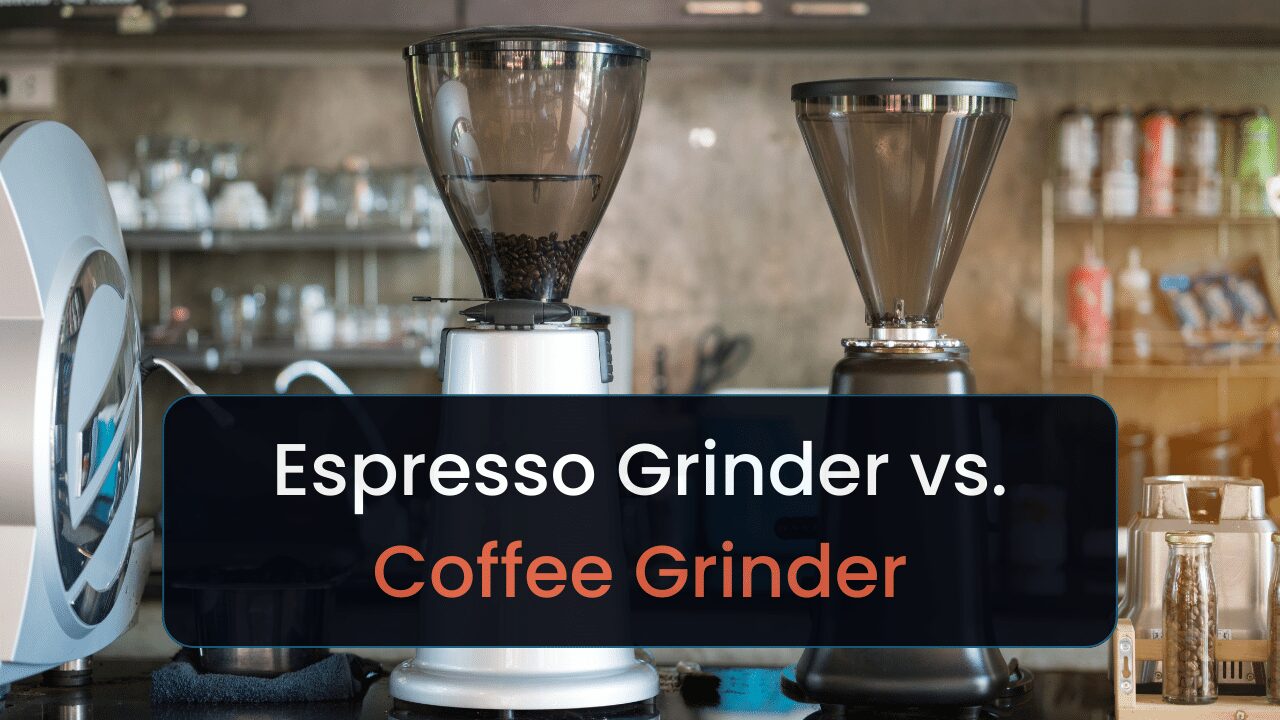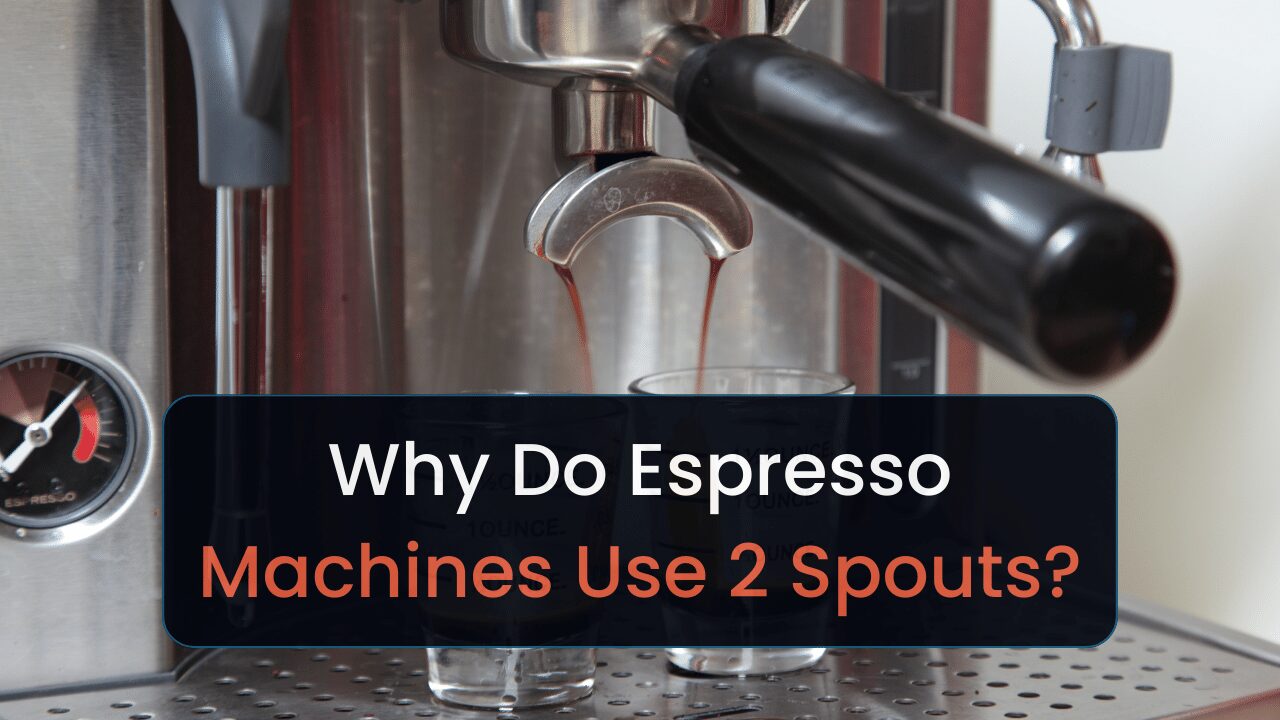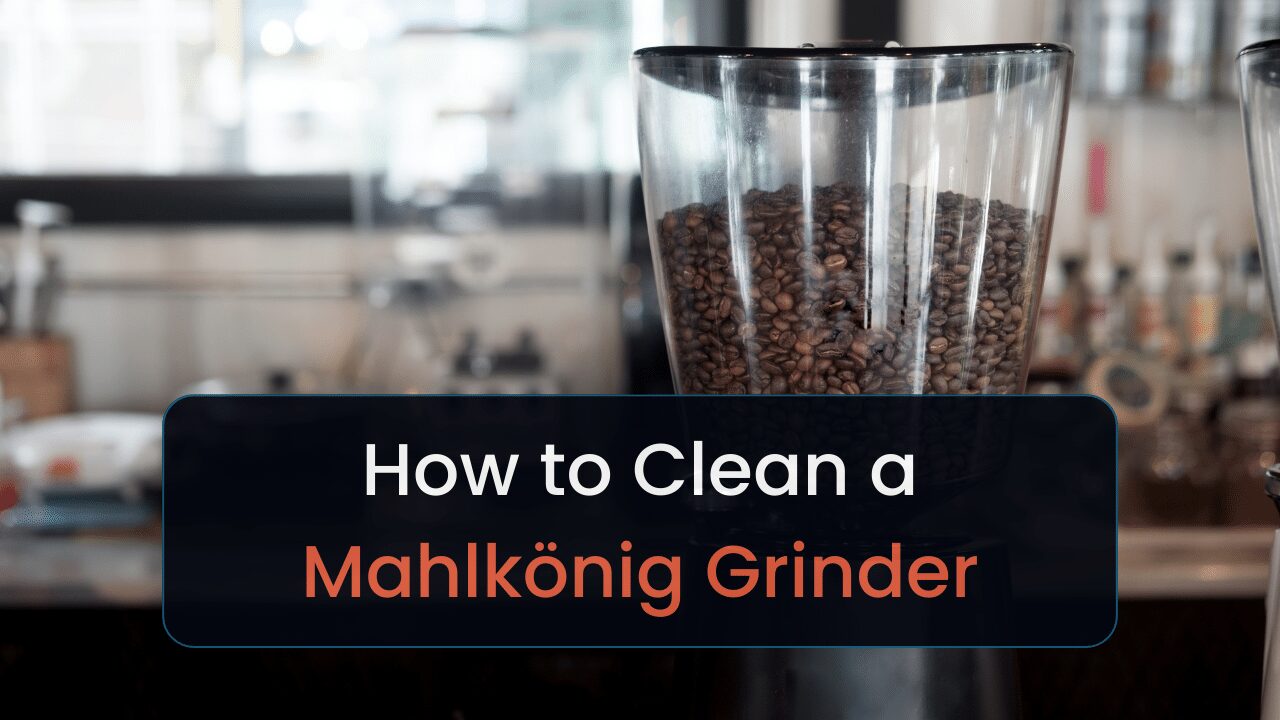I’ve tasted many different types of single origin coffee and blends from multiple locations. Personally, I prefer the exciting flavor profiles of some single origin coffees. But I can absolutely see why someone might prefer the more rounded taste of coffee blends.
Join me as I explore the differences in more detail. I’ll be discussing the following subjects throughout this article:
Let’s get started!
Key Takeaways
- Single origin coffee comes from a single location
- Coffee blends combine coffees from multiple locations
- Single origin coffee has interesting and unique flavors
- Coffee blends are a more rounded taste overall
- I recommend single origin for espresso
Single Origin Coffee vs. Coffee Blends: The Lowdown
Single origin coffee means that the beans come from a single source. What that single source is varies though. It could be one of the following:
- Single country or area: The most common type of single origin coffee is one that comes from one country or an area of a country.
- Single farm or company: Perhaps the most desirable type in my eyes is single origin coffee that comes from a single farm. Here, you’re going to get great taste distinction.
- Single lot: The most niche type of single origin coffee would be one that comes from a very particular lot of land. These are often super exclusive and can be very expensive.
Single origin coffee is often used to create a value for the brand [1] so make sure that if you check it’s well sourced if you do opt for it.
You can also get coffee blends, which are beans that come from a combination of origins. You could have beans that come from all over the world in a coffee blend.
The general definition is that there needs to be at least two sources, but there could also be a lot more than this.
There are quite a few factors to consider when you’re deciding whether to buy single origin coffee or a coffee blend.
Do you want to prioritize your budget? Is a particular flavor profile what you’re looking for? Perhaps the environmental impact is the factor you care about the most?
Here’s a look at all the different factors that go into it, and which type of coffee is better for each of them.
| Type | Single Origin | Coffee Blends |
| Flavor | X | |
| Acidity and Body | X | X |
| Overall Roast Profile | X | |
| Price | X | |
| Environmental Friendliness | X | |
| Healthiness | X | |
| Easiness of Brewing | X | X |
| Availability | X | |
| Fine Grind Drinks (Espresso) | X | X |
| Medium Grind Drinks | X | |
| Coarse Grind Drinks | X |
As you can see, single origin coffee wins on most fronts. But that doesn’t necessarily mean it’s going to be the best option for you. So let’s take a closer look at how I reached the decisions in the table above.
1. Flavor – Single origin coffee is the winner
Single origin coffee is, as the name suggests, sourced from a single location ie. Ecuador, Brazil, Kenya… Each of these locations have a very specific taste to their coffee due to a number of factors, such as the richness of the soil, the climate, the altitude etc.
Because of this, single origin coffee is going to have a very distinctive taste and this taste will vary a lot from location to location. The flavor profile of each location is part of what makes single origin coffee such an exciting thing to drink.
On the other hand, coffee blends contain coffee from multiple locations. The result is a more rounded flavor profile. Some people prefer this, but I personally don’t think coffee blends are as exciting to drink.
Plus, a lot of coffee blends contain less exciting coffee in order to bring the price of production down. So, the taste
As a result of all this, I’m confident that single origin coffee offers a lot more in the way of flavor overall.
2. Acidity and Body – It’s a tie
Coffee blends combine a number of different single origin coffees (at least two). So the acidity and body really depend on the actual individual coffees that make up the blend.
If you combine several acidic single origins into a blend then it’s going to be more acidic than a less acidic single origin coffee.
For this reason, I’m going to call this category a tie.
3. Overall Roast Profile – Single origin coffee is the winner
Single origin coffee has a more distinctive and unique roast profile. That’s why I’ve picked it as the winner for this category.
Some people will prefer the rounded and balanced roast profile of some coffee blends though.
And of course, whether you actually prefer the taste is down to personal opinion at the end of the day. But in my experience, most people prefer a single origin brew.
4. Price – Coffee blend is the winner
Coffee blends will be more affordable than single origin coffee most of the time. This is because they tend to combine coffee from cheaper sources with more expensive coffee. Single origin coffee is well-sourced and therefore often costs a lot.
This isn’t always the case though. It is possible to find a cheap single origin coffee from time to time. And if you find a coffee blend made up of expensive beans, this is going to work out pricey as well.
But generally, the coffee blend is going to be the more budget-friendly option.
5. Environmental Friendliness – Single origin coffee is the winner
It tends to be the case that single origin coffee is more ethically sourced than coffee blends. The fact that it’s often sourced from a single farm somewhere means that there’s more transparency and this forces retailers and logistical companies to act more responsibly.
It’s harder to find out which coffee beans go into a coffee blend so it’s easier for the creators of the blends to source coffee that isn’t so good for the environment in terms of its sourcing.
6. Healthiness – Single origin coffee is the winner
A potentially unexpected benefit of single origin coffee is that it’s actually healthier. The health benefits come as a consequence of environmental friendliness in a way.
Single origin coffee is more likely to be grown in soil that’s rich in nutrients due to the fact that it is curated in the best way thanks to its top sourcing.
Coffee blends might have inferior coffee beans within them that aren’t grown in such a healthy way. So most of the time, single origin coffee will have more health benefits.
7. Easiness of Brewing – It’s a tie
Single origin coffee and coffee blends are just as easy to blend as each other. The source of the coffee isn’t going to affect how easy it is to brew. So this category is going to be a tie.
8. Availability – Coffee blend is the winner
A key drawback of single origin coffee is that it can be quite hard to come by. It’s a lot more rare to find than coffee blends.
You’ll be able to find coffee blend beans in most supermarkets but you might have to head to a specialist coffee shop in order to find single origin coffee.
A lot of single origin coffee is sourced from a single farm in another part of the world (as previously mentioned) and this makes it quite hard to get hold of a lot of the time.
9. Fine Grind Drinks (Espresso) – It’s a tie
I think the best way to get the full quality of a single origin coffee is through an espresso. And for this, you’re going to want a fine and even grind.
But then again, this is down to personal opinion and I do know that a lot of people prefer the taste of coffee blends in their espresso as well. Some people insist that you need a combination of aroma, acidity, sweetness, etc. in espresso, and for this, you’re going to need a blend.
So for this category, I’m going to put my personal taste to one side and suggest that this is going to be a tie. There’s a lot of disagreement on the matter and there’s no way to say once and for all which type is better for espressos.
It wouldn’t be a bad idea to try out both types in order to find out which one you like the taste of the most.
A final note on the matter: a lot of single origin coffee is quite bitter and this doesn’t mix very well with milk. So, it might not be ideal to make a latte or a cappuccino with a single origin coffee unless you’re confident that it’s not a particularly bitter bean.
10. Medium Grind Drinks – Single origin coffee is the winner
I’d say that single origin coffee is going to be a better bet for medium grind coffee drinks such as cold brew and pour-over coffee. It’s not quite so important to have a balanced flavor portfolio in these types of drinks compared to an espresso.
Naturally, some people will still prefer the taste of a coffee blend objectively. But I’d personally recommend single origin coffee for these drinks.
11. Coarse Grind Drinks – Single origin coffee is the winner
Finally, single origin coffee is still going to be the best option for coarse grind drinks. These include French press and filter coffee.
It tends to be the case that beans which are chocolate tasting or nutty are best for these types of coffee drinks and for these flavors, you’re usually going to want a single origin coffee.
But, of course, this is also down to opinion. No matter which type of grind or coffee drink you’re going to make, you might prefer the rounded taste of the coffee blends instead.
Single Origin Coffee: Who is it Best For?
The best option for those who want to explore coffee more deeply is single origin coffee. For me, it’s exciting to learn about the flavor profiles of the locations the beans come from.
And on that note, I think it just tastes better in general most of the time. Single origin coffee tastes more exciting.
It’s the better option for the more environmentally conscious as well. Plus, there’s something to be said for the health benefits of single origin coffee in comparison to coffee blends.
Generally, single origin coffee is better for all coffee drinks. So I think big fans of coffee should opt for this when they can.
Coffee Blend: Who is it Best For?
I’d suggest that coffee blends could be a good idea for those who are new to coffee and don’t want to go ‘in at the deep end’ with single origin coffee.
You can still get coffee blends that taste great and you’re less likely to not enjoy them than single origin coffee, which can often have very distinct tastes.
Coffee blends might be a good idea for coffee shops that only serve one coffee roast. Picking a bold single origin coffee has the chance to actually put off customers who don’t love coffee from that particular location.
Furthermore, coffee blends are easier to get hold of and they’re usually cheaper. So they’ll be better suited to those on a budget or looking to get hold of coffee quickly.
Single Origin Coffee and Coffee Blends FAQ
There are a couple of other bits of information you’re probably going to want to consider before you choose between single origin coffee and coffee blends.
Can you mix different single origin coffees together in one drink?
You absolutely can. By doing this, you’d be making your own coffee blend. So if you want a more rounded flavor profile, it could be a good idea. I personally wouldn’t recommend doing it in most cases though.
Which coffee grinder burr shape should I buy for each type of coffee?
Some people say that flat burr coffee grinders highlight particular notes of flavor in coffee.
This would make them better for single origin coffee, although I think you could still get a great single origin grind with a conical burr.
You can read about the differences between the different types of burr and what they’re best for in this article.
Starbucks single-origin vs. blend, which is better?
Starbucks is one of the few chain coffee shops to offer both single origin coffee and coffee blends [2]. It comes down to personal preference as to which is better (see my guide above) but I prefer the single origin coffee myself.
Last Thoughts: Single Origin Coffee vs. Coffee Blends
If you want to be explorative with your coffee then single origin is going to be the best option for you. I think the taste is generally more interesting and you can really learn a lot about the flavor profile of each location.
But then again, it’s harder to find than coffee blends and it’s often more expensive. These factors might make coffee blends the better option for some people, as well as the more rounded taste which could be appealing to some.
So you’ve chosen which type of coffee to drink. But which coffee drink are you going to make with it? Here’s my ultimate guide to coffee drinks to help you make that decision.






